Salesforce is an American company that specializes in Software-as-a-Service. It was formed in 1999 by Marc Benioff and other shenanigans. They together formed a cloud computing company headquartered in San Francisco, California.
It has the largest market share of around 18% across the world. This market share has made Salesforce the world’s No. 1 CRM software today. Currently, it has a market capitalization of $45 billion.
It has the largest market share of around 18% across the world. This market share has made Salesforce the world’s No. 1 CRM software today. Currently, it has a market capitalization of $45 billion.
SAP CRM is a product of SAP SE Technologies. It has an Enterprise Resource Planning level system that caters to midsize and large businesses. SAP SE is headquartered in Walldorf, Germany.
It has regional offices in 130 countries and caters to almost 293,500 enterprise customers across 190 countries, a global presence like none other. It notched up annual revenue of 20.79 billion euros in 2015.
Ease of Use – Salesforce vs. SAP CRM
Undoubtedly, Salesforce is the winner here. It gives meaning to the word “ease of use”. The current version release of Salesforce has a lightning experience, which enables users to enter information lightning fast. The ease of flexibility and customization scores way too high over SAP CRM.
This ease enables organizations big and small to manage their entire CRM is a simple tool, which further can be used online and accessed from anywhere across the globe. All you need is an Internet connection, that’s it.
Although SAP CRM is also available in the cloud, the ease of use is nowhere near Salesforce. System connectivity is highly dependent on a steady Wi-Fi connection. Once there is a small break in connectivity, the entire SAP CRM connection will go for a toss.
Moreover, it is not easy to customize to suit the needs of the organization. You will need a dedicated team of developers to customize/create a report, whereas the unique drag-and-drop feature in Salesforce, makes it amazingly easy even for layman users.
Reliability – Salesforce vs. SAP CRM
Salesforce has great integration capabilities, even with SAP CRM. The latter has direct integration with the underlying ERP from SAP, which is a boon for companies that run on SAP.
They don’t have to spend on additional customizations and integrations, thus, SAP CRM has more reliable data to work upon. Because a CRM has to have an end mile feature wherein the leads can be matured to the last invoice. Since invoicing facility is there in Salesforce, there is no accounting facility.
Once Salesforce is integrated with much other usable
Speed – Salesforce vs. SAP CRM
Nothing can beat the speed quotient of Salesforce. Its cloud computing makes it truly fast. Pages load much faster. Even the users can enter leads and opportunities faster than before.
As I said, SAP CRM has backend accessibility to huge servers located somewhere on the premises. Organizations have to pay top dollar for keeping the servers up and running.
Whereas in Salesforce, you can rent the Amazon Web Servers, which are extremely fast, and come at very cheap plans. There is a pay-per-use concept in SaaS. Organizations only need to pay for the space being used/rented by them.
Features – Salesforce vs. SAP CRM
SAP CRM has multi modules, including sales, marketing, service, analytics, partner channel management, WebClient, Investigative case management, Social service, and Mobile Solutions amongst many others. They give a complete solution for midsized and large-scale enterprises.
Users have to log in to the system through the ECC environment unless they don’t have mobile solutions installed on their devices. There is no training module or help available. Users have to pay Annual Maintenance Charges over and above the license charges to get simple help from SAP.
Salesforce also has a multi-modular approach, including sales (lead, opportunity, contact, account management), marketing, service, ParDot, ExactTarget, Campaign Management, quotation management, and case management amongst others.
Users can
There is an inbuilt “Help” module on every single page, so users can check out the solution from hundreds and thousands of pre-solved know-how. Now no need to call up the call
Salesforce comes with a Chatter function, wherein users within the organization can chat with each other and discuss on the go. This is a key feature where employees who have shared something on the feed of Salesforce, the same can be liked, shared or commented upon.
Employees can appreciate and see reports and dashboards on a real-time basis. They can also give an appreciation badge over Chatter and help motivate others.
Security – Salesforce vs. SAP CRM
Having your server with someone else is always a risky affair. That’s what Salesforce is all about. Since there are no servers and firewalls of your company in action, the data security can be compromised.
Although an
Users can restrict their
Given the level of security and budget your
Given the level of transaction code
Summary – Salesforce vs. SAP CRM
It is clear that Salesforce is the ultimate winner here. it saves ample time for the users so that sales reps can spend more time on dealing and closing sales rather than writing theses about it. A faster and simpler system is the need of the hour.
